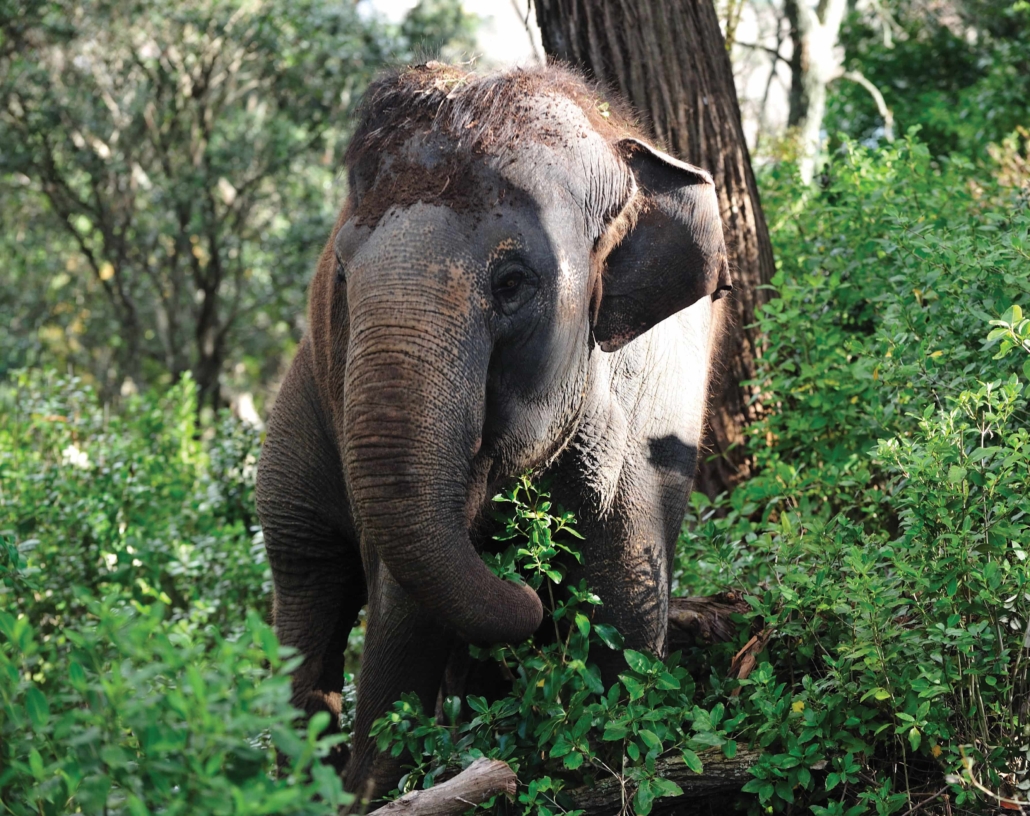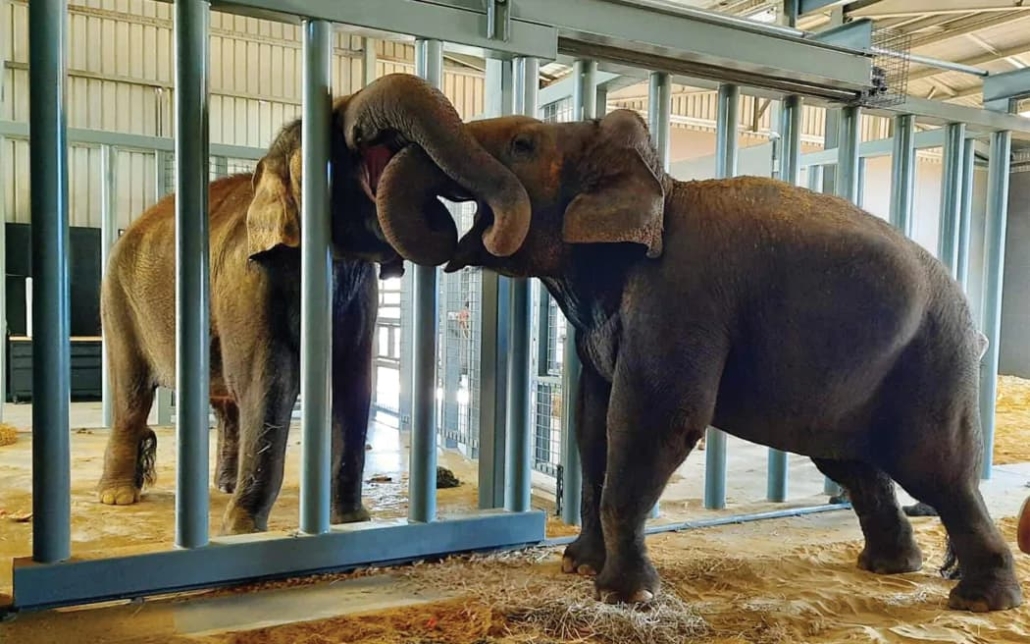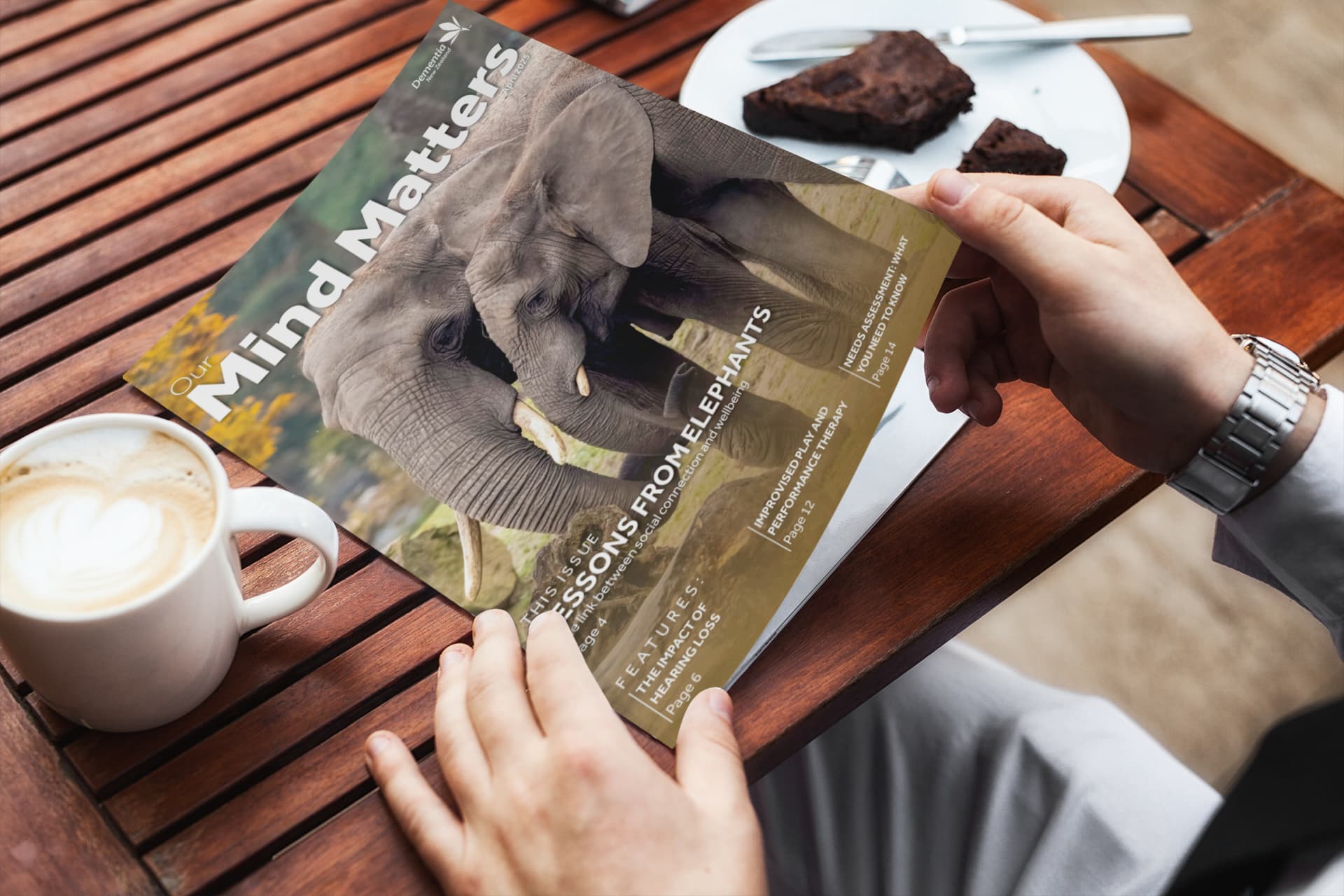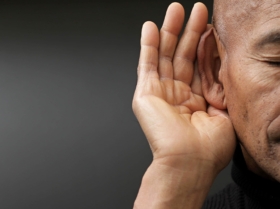What elephants can teach us about brain health
By Dr Nigel George and Alex Crook
In 1990 a new elephant, Burma, was welcomed to Auckland Zoo, having spent her early life at a logging camp in Myanmar. Over the years Burma shared her enclosure with several elephant companions, including the beloved late Kashin, Anjalee and even a horse, Cherry.
But what do elephants have to do with brain health? As it turns out, quite a lot. Just like elephants, humans rely on strong social bonds – not just for emotional wellbeing, but for cognitive health too.
Our need for social connection
Elephants have evolved to thrive in groups and are highly social creatures, with social networks that can extend to include 50 or more individuals. They form tight relationships, can be extroverted or introverted, take care of each other’s offspring, and will even share unique greetings with one another. Given elephants have evolved in this way, they don’t do well on their own.
Like elephants, humans are wired for social connection. Despite species-level differences, including the human capacity for future planning, complex language and advanced cooperation, many of our evolutionary arguments for social connection mirror those of elephants. Put simply, both then and now, we don’t do too well on our own either.
Despite rapid societal changes in recent centuries, humans still arrive in this world with the same hardwiring as earlier homo sapiens. To our brains, the perception of isolation and loneliness sets physiological alarm bells ringing just as it did for our ancestors; our stress response activates, leading to increased blood pressure, heart rate, and the slowing of routine bodily processes like digestion.
If we’re isolated for extended periods, this can lead to chronic activation of our stress response. Among other physical and mental health drawbacks, chronic stress increases inflammation and has links to accelerated cognitive decline, greater dementia risk and reduced memory function. While striking, it’s no wonder that a group of researchers found that one of the most important predictors of health and longevity – matched only by smoking behaviour – is the number and quality of our close relationships.
Threats to our social wellbeing
Burma’s time in Auckland was filled with many relationships, with her zookeepers, veterinarians, her elephant companions, and a brief (failed) cohabitation with Cherry the 11-year-old mare. But it was also filled with threats to her social wellbeing. Not only was she separated from the social enrichment that comes from living with a herd of elephants, she was also left alone without any elephant companion for six years after Kashin’s death, and two years after Anjalee’s departure.
The decision was made for Burma to be relocated to Australia at the end of 2024, where she could be integrated with a new herd.
Like Burma, threats to our own social lives are ever- present, often tied to major life transitions (e.g., death of loved ones, or moving cities or countries) and an increasingly individualistic and disconnected world. Paradoxically, it is during these moments of social uncertainty that a strong social network becomes most essential for wellbeing. Also paradoxically, it is often “social” media that we turn to soothe ourselves, when its effects can have the opposite effect.
So, the first trick to protecting our social health, along with our mental, physical and cognitive health, is noticing when our social networks need expanding or strengthening, and whether our current “social” routines are energising or depleting. Note that the perception of loneliness and isolation is key here; being introverted or enjoying your alone time is no problem – we all need some time on our own from time to time.
Prioritising social health
Back to Burma – to ensure her relocation to Australia went as smoothly as possible, her keepers from Auckland Zoo travelled inside the commercial cargo flight alongside her, with staff committed to stay nearby for as long as it takes for her to settle into her new life.
All of this to say, at the heart of this entire relocation – and the decision to move her in the first place – was Burma’s social health. We, like Burma and her elephant ancestors, are intrinsically social. But how much priority do we really give to our social connections, and those of our loved ones?
Just like Burma, start by finding your herd. Do an audit on the relationships in your life, considering those close to you, then more distant. Is there a balance in those who you support and those who support you? Are the bonds strong or weak? Having a diverse, supportive network is central to so many aspects of wellbeing, including fostering a sense of motivation, belonging, community and purpose. All these factors are crucially protective of our brain health as we age.
If you need more in the way of social connection – either quantity or quality – consider reaching out to old friends you’ve fallen out of touch with or consider starting a conversation with someone new. Research shows that, far from it being awkward, people generally appreciate being contacted and interacted with. And, if you use social media, reflect on whether it is energising, or depleting. If the latter, delete the apps and focus on the relationships in front of you.
Ultimately, social health is brain health. Just as physical exercise strengthens the body, meaningful social connections keep our brains sharp, reducing stress and protecting against cognitive decline. The more we invest in our social lives – just like Burma’s team have invested in hers – the stronger and healthier our minds remain – at any age.
Dr Nigel George is a registered clinical psychologist and workshop facilitator at Umbrella, with more than 30 years’ experience working with older adults and those that care for them. In addition to his extensive practical experience with clients, he has also spent time dedicated to researching the key factors contributing to healthy ageing. Alex Crook, who also contributed to this article, is completing his Masters in Organisational Psychology at the University of Auckland.
This article was originally published in Our Mind Matters Magazine Issue #42.



![UmbrellaLogoMasterR[1]](https://dementia.nz/wp-content/uploads/2025/04/UmbrellaLogoMasterR1-300x61.png)


